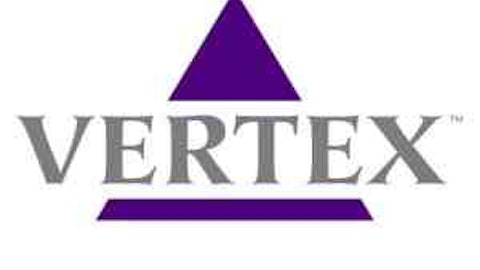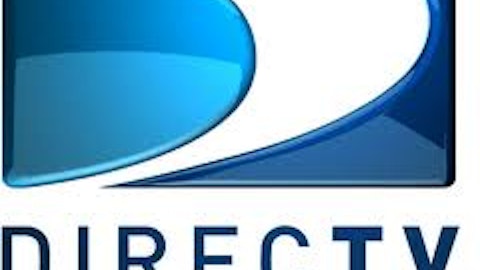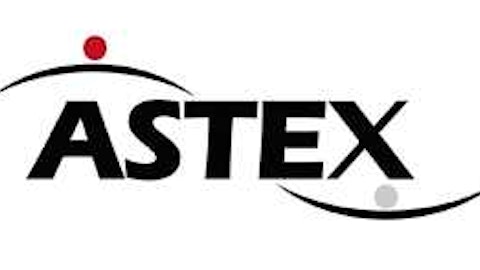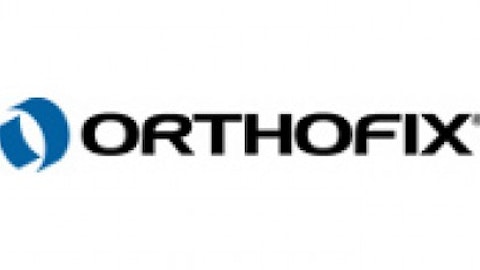Shares of Rockwell Medical Inc (NASDAQ:RMTI) soared recently, after the dialysis treatment company announced positive results regarding a study of its iron replacement drug, soluble ferric pyrophosphate (SFP), also known as Triferic. Triferic is an iron replacement therapy for chronic disease patients on dialysis, and is administered via the fluid used in dialysis. The reason for this optimism is that if Triferic is approved, it will replace the standard intravenous iron therapies that are known for causing allergic reactions.
Solid foundations in the dialysis business
Rockwell Medical Inc (NASDAQ:RMTI) sells one main product, dialysate, which detoxifies the blood and replaces nutrients during dialysis. Although Rockwell Medical Inc (NASDAQ:RMTI)’s dialysate is a low-margin product, it’s a necessary one with a growing market share. The company also manufactures hemodialysis concentrate solutions and dialysis kits globally. Hemodialysis is used to replicate kidney function in patients with failing kidneys in end stage renal disease, or ESRD.
Since dialysate is needed in dialysis clinics worldwide, Rockwell Medical Inc (NASDAQ:RMTI)’s existing customer base is a solid foundation for the company to build its dialysis business upon. Rockwell Medical Inc (NASDAQ:RMTI)’s two developmental dialysis products are calcitriol and Triferic. Calcitriol, or vitamin D, is produced by the kidneys, which are treated by dialysis — replacing it is necessary for maintaining normal calcium levels in the body. Calcitriol is expected to be approved by the end of the year. Triferic, on the other hand, replaces iron, which the body needs to produce red blood cells, and is administered directly in the dialysate.
If Triferic is approved, it could generate peak annual sales between $150 million to $250 million for Rockwell Medical Inc (NASDAQ:RMTI) — a shot in the arm for the company that generated only $49.8 million in 2012 sales. Moreover, research and development costs — which stood at $50 million last quarter — could fall by half once the Triferic trial ends, according to Sio Capital’s Michael Castor.
Although dialysate generates stable revenue for Rockwell, while calcitriol and Triferic offer new sources of growth, the company’s real strength lies in bundling all of its treatments together to clinics.
The looming threat of Medicare cuts
While Rockwell’s competitive edge is sharp, it could face upcoming losses if the Centers for Medicare and Medicaid Services, or CMS, go through with their plans to cut funding for life-sustaining dialysis treatments by 9.4%, or roughly $970 million, in 2014. 85% of dialysis patients in the United States depend on Medicare’s benefit to pay for their treatments, and if the cut takes effect, then reimbursement per dialysis treatment will be reduced from $240 to $216.
That threat has sunk bigger dialysis-related stocks across the board. Shares of DaVita HealthCare Partners Inc (NYSE:DVA) and Fresenius Medical Care AG & Co. (ADR) (NYSE:FMS), two of the largest dialysis treatment companies in the world, have respectively fallen 12% and 7% over the past three months.
DaVita HealthCare Partners Inc (NYSE:DVA) controls 33% of the U.S. dialysis market, while Fresenius controls 37%. The Medicare cut could come down much harder on DaVita HealthCare Partners Inc (NYSE:DVA), which is primarily based in the U.S., than Fresenius, which has more diversified global operations. Rockwell currently has supply relationships with both companies. DaVita HealthCare Partners Inc (NYSE:DVA) and Fresenius Medical Care AG & Co. (ADR) (NYSE:FMS) are also collaborating with Rockwell in its phase 3 Triferic studies.
Therefore, any cut that hurts DaVita HealthCare Partners Inc (NYSE:DVA) and Fresenius is sure to hurt Rockwell as well.
Smaller dialysis companies state their case
Smaller dialysis companies like NxStage Medical, Inc. (NASDAQ:NXTM) have also been affected by the proposed Medicare cuts. NxStage’s primary product is a revolutionary one — the first portable hemodialysis system approved for home use by the FDA. At only a foot tall, the NxStage System One can be taken on vacation, and ordinary tap water can be used to create dialysate on demand. Since NxStage is focused on home treatment and Rockwell Medical is concentrating on dialysis clinics, the two companies do not directly compete with each other, although they face similar challenges.
NxStage Medical, Inc. (NASDAQ:NXTM) recently submitted public comments to CMS regarding proposed changes to the ESRD Prospective Payment System for 2014, claiming that current payments are insufficient for proper home hemodialysis training. The company argued that trainers should be paid more highly per hour to ensure safer care at home, and that lower pay throttles the growth of this convenient new treatment.
Shares of NxStage have been pummeled along with DaVita HealthCare Partners Inc (NYSE:DVA) and Fresenius by the proposed Medicare cuts. Over the past three months, the stock has declined 13%, even though its revenue rose 10.9% in the prior-year quarter. NxStage is currently unprofitable, although its losses have been narrowing considerably over the past five years.
The Foolish takeaway
The dialysis business is a tricky one to navigate with the lingering uncertainties of Medicare cuts, which could seriously crimp the top line growth of all of these companies next year. However, that doesn’t mean that investors should ignore the sector altogether. With the exception of Rockwell Medical — which surged 150% over the past three months as its peers fell, most dialysis-related stocks have fallen to a point where a lot of damage has already been priced in.
Brave investors with a long-term investment horizon should take a closer look at some of these companies now, as major diseases fueling the rise of dialysis treatments — such as diabetes and ESRD — aren’t showing any signs of slowing down.
The article Why Are Investors Thrilled About This Company’s Iron Treatment? originally appeared on Fool.com and is written by Leo Sun.
Leo Sun has no position in any stocks mentioned. The Motley Fool recommends NxStage Medical. The Motley Fool owns shares of NxStage Medical.
Copyright © 1995 – 2013 The Motley Fool, LLC. All rights reserved. The Motley Fool has a disclosure policy.






